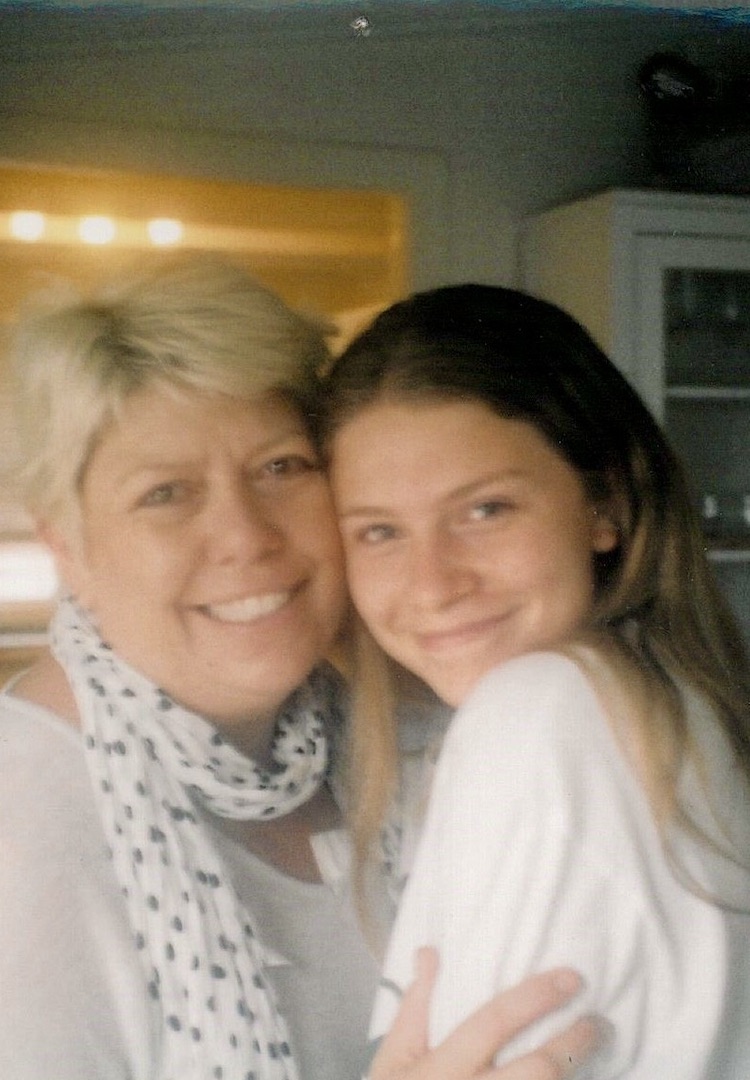What losing a parent taught me about supporting someone who’s grieving
WORDS BY ELLY SHINKFIELD
“Try to talk about the person they lost in a positive light as it can bring a sense of peace when grieving.”
In July last year, my dad passed away from lung disease. It wasn’t necessarily a shock; we knew since the beginning of the year he didn’t have long but it didn’t make it any easier. Despite what every doctor and specialist had told us, I convinced myself he would be the miracle case that made a full recovery.
It wasn’t like this was an outlandish belief. He had outlived every challenge he was faced with – a stroke, cardiovascular disease and a subsequent triple bypass operation – but unfortunately this time he wasn’t so lucky.
Interested to hear how others navigate the world? Head to our Life section.
In the days leading up to his passing, he had declined rapidly and we knew the end was near. It was heartbreaking to experience the anticipation and fear of loss, almost as if I was grieving the person who was still right in front of me.
I remember the day he passed like it was yesterday. My brother shook me awake in the early hours of the morning to tell me it had happened. No matter how much I’d mentally prepared myself for losing him, I was never going to be ready.
From all of this hardship, something I gained is an understanding of how to care for someone who’s grieving the loss of a loved one. Everyone grieves differently, but there are ways of looking after someone who’s experienced loss that I believe are universal.
Saying something is better than saying nothing
Grief and loss are uncomfortable topics and we tend to shy away from talking about them. When I lost my dad, a lot of people said nothing at all. I think they had no idea what to say or were afraid of saying the wrong thing. I received the standard messages of “Sorry for your loss” or “Thinking of you”, but after that I was alone.
Only a few people reached out or checked in on me to see how I was or just to have a chat. My advice is to say something – anything at all – and keep in contact with them. Let them know you’re there and continue to check up on them. They may not be ready to see anyone or talk about it, but knowing someone is thinking of you makes all the difference in the world.
I often found myself feeling isolated, and I think receiving a “Hey, just checking in to see how you’re doing?” would have helped me cope with my complicated and ever-changing feelings of grief. All I had during that time was my family, and although they helped me through it, having someone who wasn’t experiencing the pain we were all going through would have been helpful.
Share positive memories of their loved one
Try to talk about the person they lost in a positive light as it can bring a sense of peace when grieving. It might seem like they don’t want to talk about them but most of the time they do. When I was grieving I found a lot of comfort in speaking to people who were ‘strangers’ to me but who had loved my dad very much.
Hearing the memories they shared with him – like how he met his best friend Bob hitchhiking in the early ’70s – and the love they had for him made me smile. A heartwarming story or memory goes a long way. If you have a fond memory of the person they lost, tell them.
Don’t put a timeline on their grief journey
To support someone grieving you need to understand that grief is not linear and that just because they seem happy one day it does not mean they will be the next. Or even that they were happy at all. After all, grief is an ongoing process. Don’t put expectations on them and let them know it’s okay to have a bad day. I found when I was grieving, people just expected me to go back to ‘normal life’ within the first two months.
But I didn’t have any normalcy anymore, I had lost a constant in my life; the life I was going back to wasn’t the same at all. Everything I used to know was different, and everything felt wrong. Yet I still had people asking me “Why are you still taking time off?” or “Why do you keep going home to visit your family?” as if I hadn’t just lost my dad. It was like everyone around me just expected me to continue as if nothing had happened. Continuing to acknowledge and talk about the loss is helpful because it shows the person who’s grieving that you understand they may still be struggling.
Give them grace
When supporting someone who’s grieving it’s important to give them grace during life events and milestones like Christmas, birthdays and weddings. These times can bring up intense emotions and be a particularly hard time for them as they serve as a reminder of the person they’ve lost. Everything they’d previously envisaged happening during these milestones can no longer occur and that may be difficult for them to comprehend.
Final thoughts
Remember, we will all experience loss at some point in our lives and each grief journey is different. You never get over losing a loved one, you just learn to live differently.
If you’re struggling with grief, try these resources.













